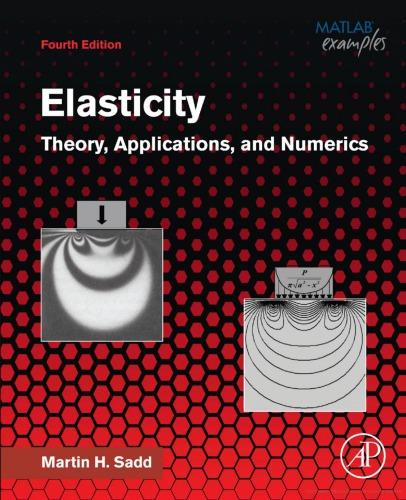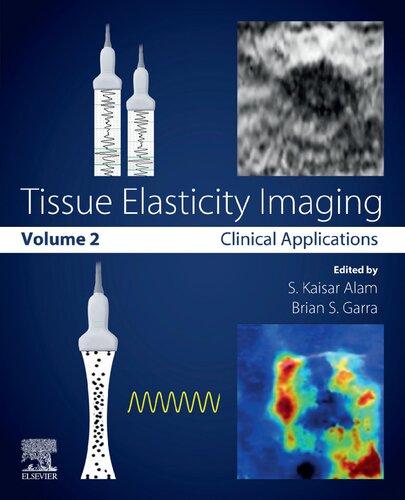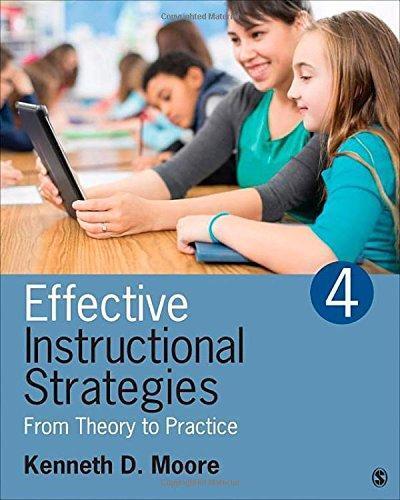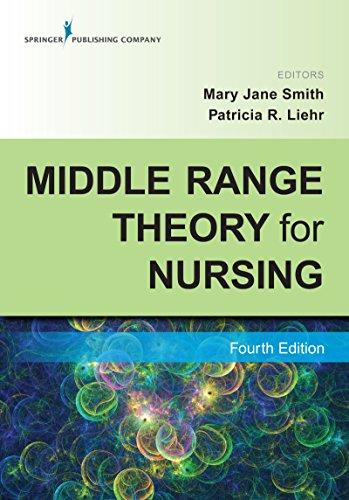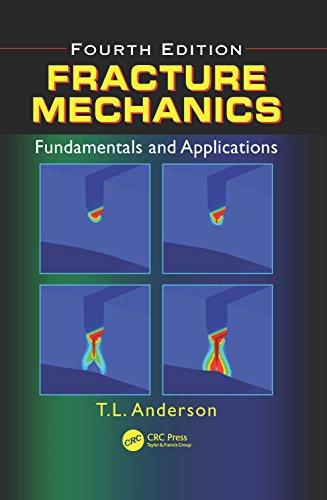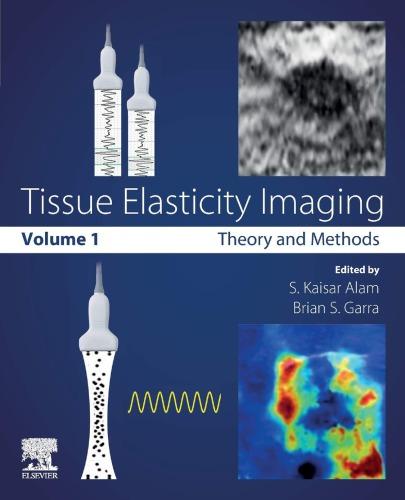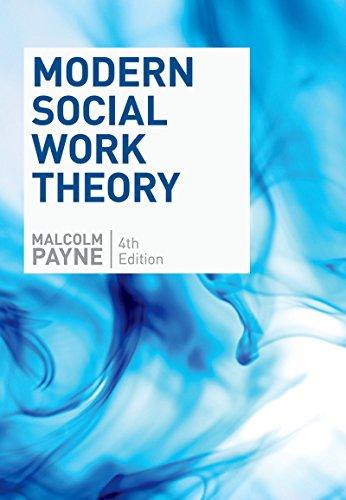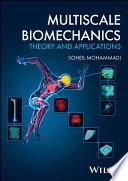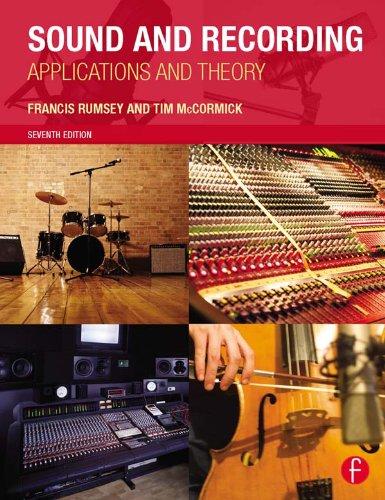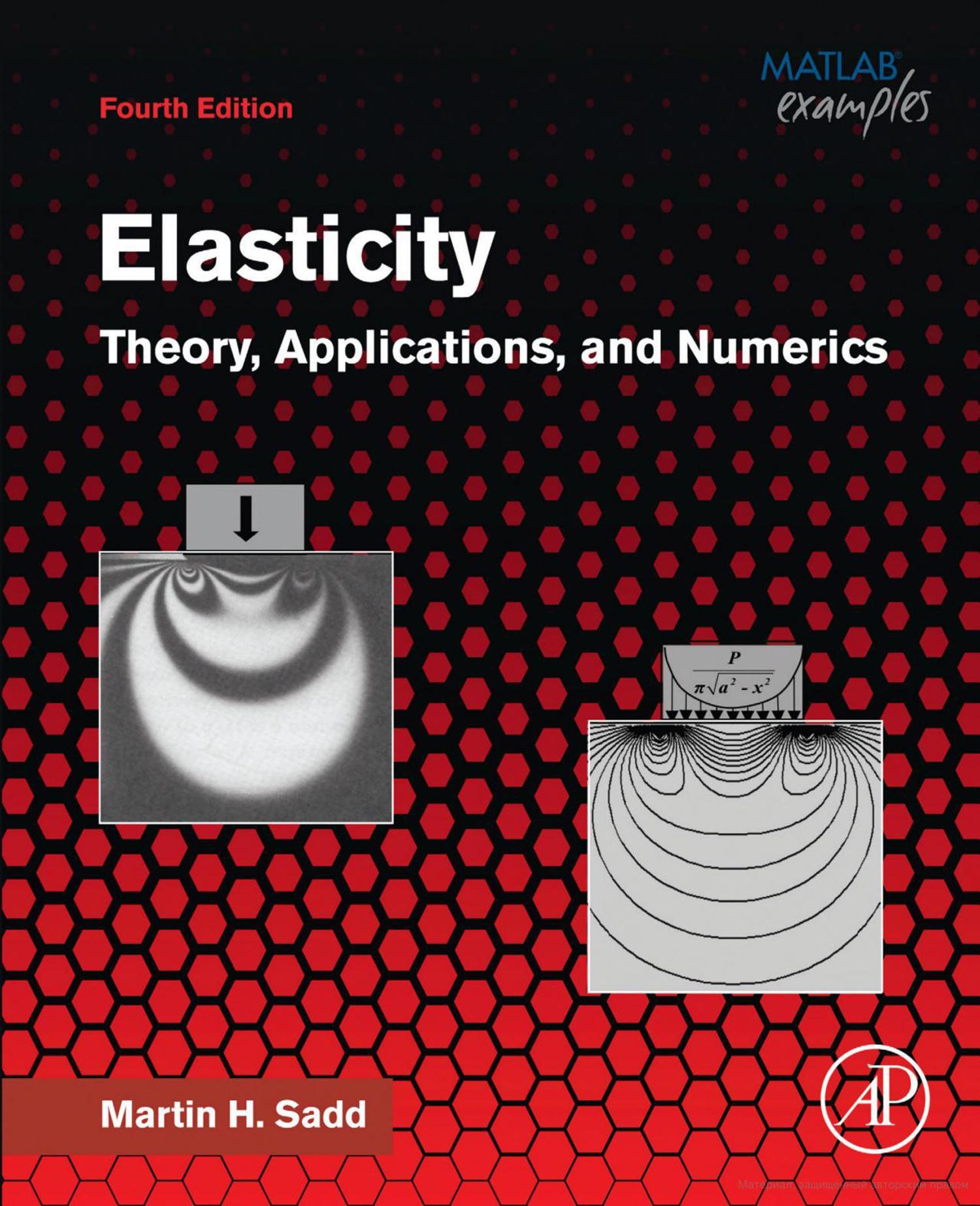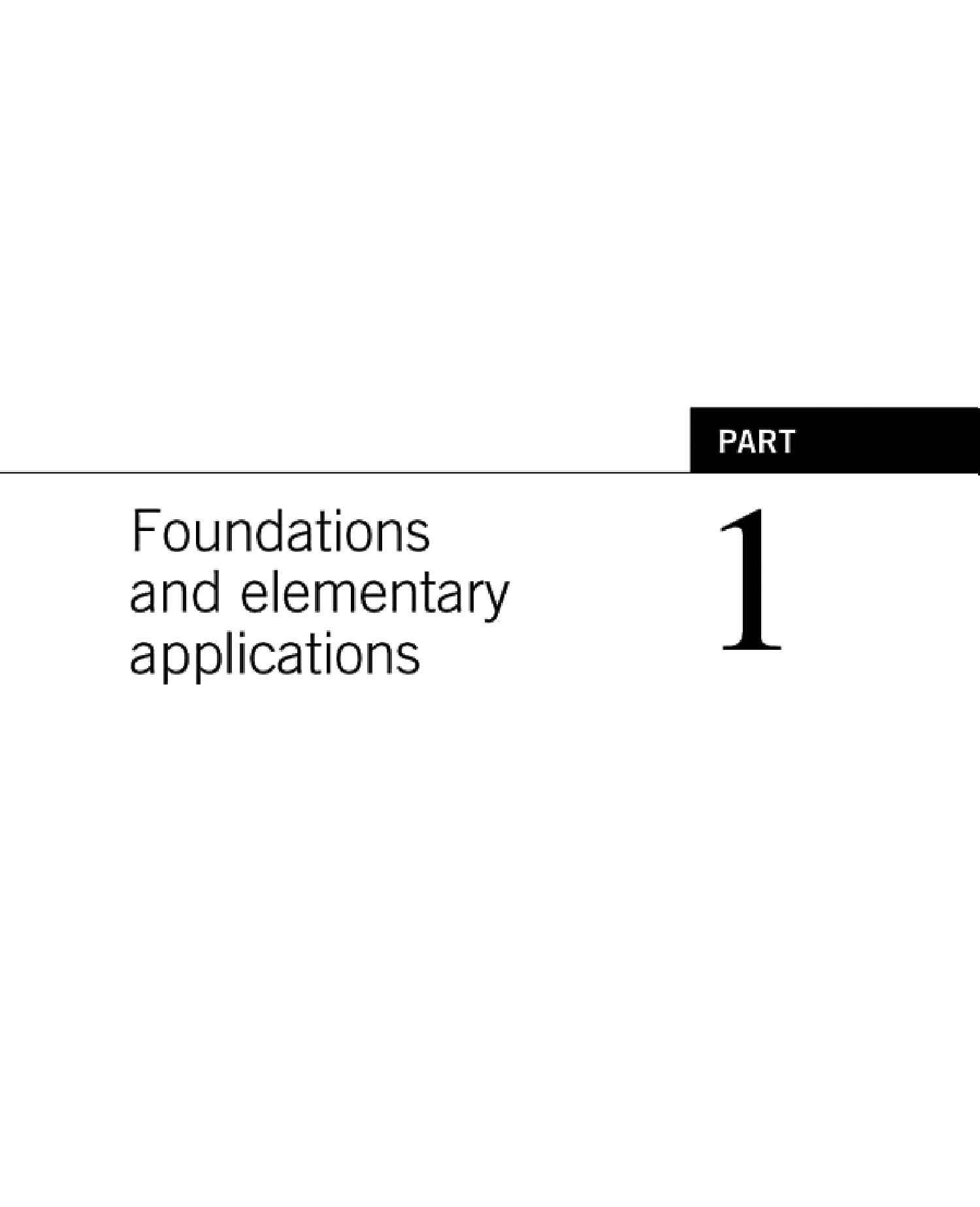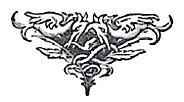Elasticity: theory, applications, and numerics Fourth Edition Sadd
https://ebookmass.com/product/elasticity-theoryapplications-and-numerics-fourth-edition-sadd/
Download more ebook from https://ebookmass.com
More products digital (pdf, epub, mobi) instant download maybe you interests ...
Tissue Elasticity Imaging: Volume 2: Clinical Applications S. Kaisar Alam (Editor)
https://ebookmass.com/product/tissue-elasticity-imagingvolume-2-clinical-applications-s-kaisar-alam-editor/
Effective Instructional Strategies: From Theory to Practice Fourth Edition
https://ebookmass.com/product/effective-instructional-strategiesfrom-theory-to-practice-fourth-edition/
Middle Range Theory for Nursing, Fourth Edition (Ebook PDF)
https://ebookmass.com/product/middle-range-theory-for-nursingfourth-edition-ebook-pdf/
Fracture Mechanics: Fundamentals and Applications, Fourth Edition 4th Edition – Ebook PDF Version
https://ebookmass.com/product/fracture-mechanics-fundamentalsand-applications-fourth-edition-4th-edition-ebook-pdf-version/
Tissue Elasticity Imaging S. Kaisar Alam
https://ebookmass.com/product/tissue-elasticity-imaging-s-kaisaralam/
Modern Social Work Theory, Fourth Edition 4th Edition –Ebook PDF Version
https://ebookmass.com/product/modern-social-work-theory-fourthedition-4th-edition-ebook-pdf-version/
Multiscale Biomechanics: Theory And Applications 1st Edition Soheil Mohammadi
https://ebookmass.com/product/multiscale-biomechanics-theory-andapplications-1st-edition-soheil-mohammadi/
Electromagnetic Metasurfaces: Theory and Applications (Wiley - IEEE) 1st Edition Karim Achouri
https://ebookmass.com/product/electromagnetic-metasurfacestheory-and-applications-wiley-ieee-1st-edition-karim-achouri/
Sound and Recording: Applications and Theory 7th Edition, (Ebook PDF)
https://ebookmass.com/product/sound-and-recording-applicationsand-theory-7th-edition-ebook-pdf/
MartinH.Sadd
ProfessorEmeritus,UniversityofRhodeIsland
DepartmentofMechanicalEngineeringandAppliedMechanics
Kingston,RhodeIsland
AcademicPressisanimprintofElsevier
125LondonWall,LondonEC2Y5AS,UnitedKingdom 525BStreet,Suite1650,SanDiego,CA92101,UnitedStates 50HampshireStreet,5thFloor,Cambridge,MA02139,UnitedStates TheBoulevard,LangfordLane,Kidlington,OxfordOX51GB,UnitedKingdom
Copyright © 2021ElsevierInc.Allrightsreserved.
Nopartofthispublicationmaybereproducedortransmittedinanyformorbyanymeans,electronicor mechanical,includingphotocopying,recording,oranyinformationstorageandretrievalsystem,without permissioninwritingfromthepublisher.Detailsonhowtoseekpermission,furtherinformationaboutthe Publisher’spermissionspoliciesandourarrangementswithorganizationssuchastheCopyrightClearance CenterandtheCopyrightLicensingAgency,canbefoundatourwebsite: www.elsevier.com/permissions .
ThisbookandtheindividualcontributionscontainedinitareprotectedundercopyrightbythePublisher (otherthanasmaybenotedherein).
MATLAB isatrademarkofTheMathWorks,Inc.andisusedwithpermission.TheMathWorksdoesnot warranttheaccuracyofthetextorexercisesinthisbook.
Thisbook’suseordiscussionofMATLAB softwareorrelatedproductsdoesnotconstituteendorsementor sponsorshipbyTheMathWorksofaparticularpedagogicalapproachorparticularuseoftheMATLAB software.
Notices
Knowledgeandbestpracticeinthis fieldareconstantlychanging.Asnewresearchandexperiencebroadenour understanding,changesinresearchmethods,professionalpractices,ormedicaltreatmentmaybecome necessary.
Practitionersandresearchersmustalwaysrelyontheirownexperienceandknowledgeinevaluatingandusing anyinformation,methods,compounds,orexperimentsdescribedherein.Inusingsuchinformationor methodstheyshouldbemindfuloftheirownsafetyandthesafetyofothers,includingpartiesforwhomthey haveaprofessionalresponsibility.
Tothefullestextentofthelaw,neitherthePublishernortheauthors,contributors,oreditors,assumeany liabilityforanyinjuryand/ordamagetopersonsorpropertyasamatterofproductsliability,negligenceor otherwise,orfromanyuseoroperationofanymethods,products,instructions,orideascontainedinthe materialherein.
LibraryofCongressCataloging-in-PublicationData
AcatalogrecordforthisbookisavailablefromtheLibraryofCongress
BritishLibraryCataloguing-in-PublicationData
AcataloguerecordforthisbookisavailablefromtheBritishLibrary
ISBN:978-0-12-815987-3
ForinformationonallAcademicPresspublicationsvisitourwebsiteat https://www.elsevier.com/books-and-journals
Publisher: KateyBirtcher
AcquisitionEditor: SteveMerken
EditorialProjectManager: SusanIkeda
ProductionProjectManager: SruthiSatheesh
CoverDesigner: GregHarris
TypesetbyTNQTechnologies
Preface
Aswiththepreviousworks,thisfourtheditioncontinuestheauthor’seffortstopresentlinearelasticity withcompleteandconcisetheoreticaldevelopment,numerousandcontemporaryapplications,and enrichingnumericstoaidinproblemsolutionandunderstanding.Overtheyearstheauthorhasgiven muchthoughtonwhatshouldbetaughttostudentsinthisfieldandwhateducationaloutcomeswould beexpected.Theoreticaltopicsthatarerelatedtothefoundationsofelasticityshouldbepresentedin sufficientdetailthatwillallowstudentstoreadandgenerallyunderstandcontemporaryresearch papers.Relatedtothisidea,studentsshouldacquirenecessaryvectorandtensornotationalskills andunderstandfundamentaldevelopmentofthebasicfieldequations.Studentsshouldalsohavea solidunderstandingoftheformulationandsolutionofvariouselasticityboundary-valueproblems thatincludeavarietyofdomainandloadinggeometries.Finally,studentsshouldbeabletoapplymodernengineeringsoftware(MATLAB,MapleorMathematica)toaidinthesolution,evaluationand graphicaldisplayofvariouselasticityproblemsolutions.Thesepointsareallemphasizedinthistext.
Inadditiontomakingnumeroussmallcorrectionsandclarifications,severalnewitemshavebeen added.AnewsectioninChapter5onsingularelasticitysolutionshasbeenintroducedtogenerally acquaintstudentswiththistypeofbehavior.CubicanisotropyhasnowbeenpresentedinChapter 11asanotherparticularformofelasticanisotropy.Inequalityelasticmodulirestrictionsforvarious anisotropicmaterialmodelshavebeenbetterorganizedinanewtableinChapter11.Thegeneral Naghdi-HsusolutionhasnowbeenintroducedinChapter13.Anadditionalmicromechanicalmodel ofgradientelasticityhasbeenaddedinChapter15.AcoupleofnewMATLABcodesinAppendixC havebeenaddedandallcodesarenowreferencedinthetextwheretheyareused.Withtheadditionof 31newexercises,thefourtheditionnowhas441totalexercises.Theseproblemsshouldprovideinstructorswithmanynewandpreviousoptionsforhomework,exams,ormaterialforin-classpresentationsordiscussions.TheonlineSolutionsManualhasbeenupdatedandcorrectedandincludes solutionstoallexercisesinthenewedition.Alltexteditionsfollowtheoriginallineageasan outgrowthoflecturenotesthatIhaveusedinteachingatwo-coursesequenceinthetheoryofelasticity. PartIofthetextisdesignedprimarilyforthefirstcourse,normallytakenbybeginninggraduatestudentsfromavarietyofengineeringdisciplines.Thepurposeofthefirstcourseistointroducestudents totheoryandformulation,andtopresentsolutionstosomebasicproblems.Inthisfashionstudentssee howandwhythemorefundamentalelasticitymodelofdeformationshouldreplaceelementary strengthofmaterialsanalysis.Thefirstcoursealsoprovidesfoundationformoreadvancedstudyin relatedareasofsolidmechanics.AlthoughthemoreadvancedmaterialincludedinPartIIhasnormally beenusedforasecondcourse,Ioftenborrowselectedtopicsforuseinthefirstcourse.Theelasticity presentationinthisbookreflectsthewordsusedinthetitle-theory,applications,andnumerics. Becausetheoryprovidesthefundamentalcornerstoneofthisfield,itisimportanttofirstprovidea soundtheoreticaldevelopmentofelasticitywithsufficientrigortogivestudentsagoodfoundation forthedevelopmentofsolutionstoabroadclassofproblems.Thetheoreticaldevelopmentiscarried outinanorganizedandconcisemannerinordertonotlosetheattentionofthelessmathematically inclinedstudentsorthefocusofapplications.Withaprimarygoalofsolvingproblemsof engineeringinterest,thetextoffersnumerousapplicationsincontemporaryareas,includinganisotropiccompositeandfunctionallygradedmaterials,fracturemechanics,micromechanicsmodeling, thermoelasticproblems,andcomputationalfiniteandboundaryelementmethods.Numeroussolved exampleproblemsandexercisesareincludedinallchapters.
Theneweditioncontinuesthespecialuseofintegratednumerics.Bytakingtheapproachthat applicationsoftheoryneedtobeobservedthroughcalculationandgraphicaldisplay,numericsis accomplishedthroughtheuseofMATLAB,oneofthemostpopularengineeringsoftwarepackages. Thissoftwareisusedthroughoutthetextforapplicationssuchasstressandstraintransformation,evaluationandplottingofstressanddisplacementdistributions,finiteelementcalculations,andcomparisonsbetweenstrengthofmaterialsandanalyticalandnumericalelasticitysolutions.Withnumerical andgraphicalevaluations,applicationproblemsbecomemoreinterestingandusefulforstudent learning.OthersoftwaresuchasMapleorMathematicacouldalsobeused.
Contentssummary
PartIofthebookemphasizesformulationdetailsandelementaryapplications.Chapter1providesa mathematicalbackgroundfortheformulationofelasticitythroughareviewofscalar,vector,and tensorfieldtheory.Cartesiantensornotationisintroducedandisusedthroughoutthebook’sformulationsections.Chapter2coverstheanalysisofstrainanddisplacementwithinthecontextofsmall deformationtheory.Theconceptofstraincompatibilityisalsopresentedinthischapter.Forces, stresses,theequilibriumconceptandvariousstresscontourlinesaredevelopedinChapter3.Linear elasticmaterialbehaviorleadingtothegeneralizedHooke’slawisdiscussedinChapter4,whichalso brieflypresentsnonhomogeneous,anisotropic,andthermoelasticconstitutiveforms.Laterchapters morefullyinvestigatethesetypesofapplications.Chapter5collectsthepreviouslyderivedequations andformulatesthebasicboundaryvalueproblemsofelasticitytheory.Displacementandstressformulationsareconstructedandgeneralsolutionstrategiesareidentified.Thisisanimportantchapterfor studentstoputthetheorytogether.Chapter6presentsstrainenergyandrelatedprinciples,including thereciprocaltheorem,virtualwork,andminimumpotentialandcomplementaryenergy.Twodimensionalformulationsofplanestrain,planestress,andantiplanestrainaregiveninChapter7. AnextensivesetofsolutionsforspecifictwodimensionalproblemsisthenpresentedinChapter8, andmanyapplicationsemployingMATLABareusedtodemonstratetheresults.Analyticalsolutions arecontinuedinChapter9fortheSaint-Venantextension,torsion,andflexureproblems.Thematerial inPartIprovidesalogicalandorderlybasisforasoundone-semesterbeginningcourseinelasticity. Selectedportionsofthetext’ssecondpartcouldalsobeincorporatedintosuchacourse.PartIIdelves intomoreadvancedtopicsnormallycoveredinasecondcourse.ThepowerfulmethodofcomplexvariablesfortheplaneproblemispresentedinChapter10,andseveralapplicationstofracturemechanics aregiven.Chapter11extendsthepreviousisotropictheoryintothebehaviorofanisotropicsolidswith emphasisoncompositematerials.Thisisanimportantapplicationand,again,examplesrelatedtofracturemechanicsareprovided.Curvilinearanisotropyincludingbothcylindricalandsphericalorthotropyisincludedinthischaptertoexploresomebasicproblemsolutionswiththistypeofmaterial structure.AnintroductiontothermoelasticityisdevelopedinChapter12,andseveralspecificapplicationproblemsarediscussed,includingstressconcentrationandcrackproblems.Potentialmethods, includingbothdisplacementpotentialsandstressfunctions,arepresentedinChapter13.These methodsareusedtodevelopseveralthree-dimensionalelasticitysolutions.
Chapter14coversnonhomogeneouselasticity,andthismaterialisuniqueamongcurrentstandard elasticitytexts.Afterbrieflycoveringtheoreticalformulations,severaltwo-dimensionalsolutionsare generatedalongwithcomparisonfieldplotswiththecorrespondinghomogeneouscases.Chapter15
presentsacollectionofelasticityapplicationstoproblemsinvolvingmicromechanicsmodeling. Includedareapplicationsfordislocationmodeling,singularstressstates,solidswithdistributed cracks,micropolar,distributedvoids,doubletmechanicsandhighergradienttheories.Chapter16providesabriefintroductiontothepowerfulnumericalmethodsoffiniteandboundaryelementtechniques.Althoughonlytwo-dimensionaltheoryisdeveloped,thenumericalresultsintheexample problemsprovideinterestingcomparisonswithpreviouslygeneratedanalyticalsolutionsfromearlier chapters.ThisfourtheditionofElasticityconcludeswithfourappendicesthatcontainaconcisesummarylistingofbasicfieldequations;transformationrelationsbetweenCartesian,cylindrical,and sphericalcoordinatesystems;aMATLABprimer;andaself-containedreviewofmechanicsofmaterials.
Thesubject
Elasticityisanelegantandfascinatingsubjectthatdealswithdeterminationofthestress,strain,and displacementdistributioninanelasticsolidundertheinfluenceofexternalforces.Followingtheusual assumptionsoflinear,small-deformationtheory,theformulationestablishesamathematicalmodel thatallowssolutionstoproblemsthathaveapplicationsinmanyengineeringandscientificfields suchas:
•Civilengineeringapplicationsincludeimportantcontributionstostressanddeflectionanalysisof structures,suchasrods,beams,plates,andshells.Additionalapplicationslieingeomechanics involvingthestressesinmaterialssuchassoil,rock,concrete,andasphalt.
•Mechanicalengineeringuseselasticityinnumerousproblemsinanalysisanddesignofmachine elements.Suchapplicationsincludegeneralstressanalysis,contactstresses,thermalstress analysis,fracturemechanics,andfatigue.
•Materialsengineeringuseselasticitytodeterminethestressfieldsincrystallinesolids,around dislocations,andinmaterialswithmicrostructure.
•Applicationsinaeronauticalandaerospaceengineeringtypicallyincludestress,fracture,and fatigueanalysisinaerostructures.
•Biomechanicalengineeringuseselasticitytostudythemechanicsofboneandvarioustypesofsoft tissue.
Thesubjectalsoprovidesthebasisformoreadvancedworkininelasticmaterialbehavior, includingplasticityandviscoelasticity,andthestudyofcomputationalstressanalysisemployingfinite andboundaryelementmethods.Sinceelasticityestablishesamathematicalmodelofthedeformation problem,itrequiresmathematicalknowledgetounderstandformulationandsolutionprocedures. Governingpartialdifferentialfieldequationsaredevelopedusingbasicprinciplesofcontinuum mechanicscommonlyformulatedinvectorandtensorlanguage.Techniquesusedtosolvethesefield equationscanencompassFouriermethods,variationalcalculus,integraltransforms,complexvariables,potentialtheory,finitedifferences,finiteelements,andsoforth.Topreparestudentsforthissubject,thetextprovidesreviewsofmanymathematicaltopics,andadditionalreferencesaregivenfor furtherstudy.Itisimportantforstudentstobeadequatelypreparedforthetheoreticaldevelopments, orelsetheywillnotbeabletounderstandnecessaryformulationdetails.Ofcourse,withemphasison applications,thetextconcentratesontheorythatismostusefulforproblemsolution.
Theconceptoftheelasticforce deformationrelationwasfirstproposedbyRobertHookein1678. However,themajorformulationofthemathematicaltheoryofelasticitywasnotdevelopeduntilthe nineteenthcentury.In1821Navierpresentedhisinvestigationsonthegeneralequationsofequilibrium;thiswasquicklyfollowedbyCauchy,whostudiedthebasicelasticityequationsanddeveloped theconceptofstressatapoint.Alonglistofprominentscientistsandmathematicianscontinueddevelopmentofthetheory,includingtheBernoullis,LordKelvin,Poisson,Lame’,Green,Saint-Venant, Betti,Airy,Kirchhoff,Rayleigh,Love,Timoshenko,Kolosoff,Muskhelishvilli,andothers.
DuringthetwodecadesafterWorldWarII,elasticityresearchproducedalargenumberofanalyticalsolutionstospecificproblemsofengineeringinterest.The1970sand1980sincludedconsiderable workonnumericalmethodsusingfiniteandboundaryelementtheory.Alsoduringthisperiod,elasticityapplicationsweredirectedatanisotropicmaterialsforapplicationstocomposites.Morerecently, elasticityhasbeenusedinmodelingmaterialswithinternalmicrostructuresorheterogeneityandin inhomogeneous,gradedmaterials.Therebirthofmoderncontinuummechanicsinthe1960sledto areviewofthefoundationsofelasticityandestablishedarationalplaceforthetheorywithinthegeneralframework.HistoricaldetailscanbefoundinthetextsbyTodhunterandPearson, Historyofthe TheoryofElasticity;Love,A TreatiseontheMathematicalTheoryofElasticity;andTimoshenko, AHistoryofStrengthofMaterials.
Exercisesandwebsupport
Ofspecialnoteinregardtothistextistheuseofexercisesandthepublisher’swebsite, www.textbooks. elsevier.com.Numerousexercisesareprovidedattheendofeachchapterforhomeworkassignments toengagestudentswiththesubjectmatter.Theexercisesalsoprovideanidealtoolfortheinstructorto presentadditionalapplicationexamplesduringclasslectures.Manyplacesinthetextmakereference tospecificexercisesthatworkoutdetailstoaparticulartopic.Exercisesmarkedwithanasterisk(*) indicateproblemsthatrequirenumericalandplottingmethodsusingthesuggestedMATLABsoftware.Solutionstoallexercisesareprovidedtoregisteredinstructorsonlineatthepublisher’swebsite, therebyprovidinginstructorswithconsiderablehelpinusingthismaterial.Inaddition,downloadable MATLABsoftwareisavailabletoaidbothstudentsandinstructorsindevelopingcodesfortheirown particularusetoalloweasyintegrationofthenumerics.Aswiththepreviousedition,anon-linecollectionofPowerPointslidesisavailableforChapters1-9.Thismaterialincludesgraphicalfiguresand summariesofbasicequationsthathaveproventobeusefulduringclasspresentations.
Feedback
Theauthorisstronglyinterestedincontinualimprovementofengineeringeducationandwelcomes feedbackfromusersofthebook.Pleasefeelfreetosendcommentsconcerningsuggestedimprovementsorcorrectionsviasurfacemailoremail(saddm@uri.edu).Itislikelythatsuchfeedbackwill besharedwiththetext’susercommunityviathepublisher’swebsite.
1.3Kroneckerdeltaandalternatingsymbol
Ausefulspecialsymbolcommonlyusedinindexnotationalschemesisthe Kroneckerdelta definedby
Withinusualmatrixtheory,itisobservedthatthissymbolissimplytheunitmatrix.Notethatthe Kroneckerdeltaisasymmetricsymbol.ParticularlyusefulpropertiesoftheKroneckerdeltainclude thefollowing
Anotherusefulspecialsymbolisthe alternating or permutationsymbol definedby
0.Therefore, ofthe27possibletermsforthealternatingsymbol,threeareequalto þ1,threeareequalto 1,andall othersare0.Thealternatingsymbolisantisymmetricwithrespecttoanypairofitsindices.
Thisparticularsymbolisusefulinevaluatingdeterminantsandvectorcrossproducts,andthe determinantofanarray aij canbewrittenintwoequivalentforms
wherethefirstindexexpressionrepresentstherowexpansion,whilethesecondformisthecolumn expansion.Usingtheproperty
anotherformofthedeterminantofamatrixcanbewrittenas
Another random document with no related content on Scribd:
and was taken up very much hurt, and had to be conveyed to the hospital. So an hour quickly slipped away, and the children would soon be home.
"Will he ever be able to walk again, do you think?" asked Tom, when Arthur paused.
"I don't know about that; but one thing I can tell you, he has no mother or nurse like you, and lies now on his back in a little close room, with nothing to see and nothing to do."
"Does he? Where is he? Does he never go out?"
"Never; because papa goes to see him, and he told me so. And they have no easy perambulator like you, Tom, to lay him in. And he never gets sight of the park as you do, or of trees, or even shops, and looks all day long just upon the same old ceiling and ugly paper of his little dull room!"
Tom glanced round his pleasant nursery, and at the bricks which Arthur was replacing in their box.
"I never thought of that," he said, and sighed deeply.
"We have brought you some of our sweets, Tom," said Dolly, running in and holding out a little paper.
"Oh, thank you!" said Tom. "And I have been having such a nice play with Arthur."
Nellie's little girls had quite recovered their spirits when they came to the schoolroom, and their lessons were got through without any further difficulty.
Ada looked in once with a very black face; but no one spoke to her, and she did not vouchsafe any remark, but,
after looking at what they were about, took herself off to her own room, where she turned out her things on the floor, and sat down amongst the confusion to pick out what she wanted to take with her to South Bay.
Out of humour with everyone, and with herself above all, she soon grew tired and hot. The ribbons seemed endless; the gloves would not pair; unexpected holes and rents appeared in garments she had thought were quite ready for packing; and at length, thoroughly disheartened, she laid her head on the side of the bed near which she was seated and began to cry.
She was startled by a cheerful "Hulloa! Here's a mess!" And Arthur came striding across the forlorn room, and perched himself on the footboard of her bedstead.
"Well, Ada, so this is packing is it? I told you it was too soon to begin, and now you've proved it. The way to pack is, wait till the last moment, then seize a carpet bag, rush to your drawers, take out one of each sort of thing, stuff them in as quick as lightning, squeeze them in somehow, lock it up, rush down stairs, jump into a cab, and hope you've left nothing behind."
Ada laughed, in spite of her bad spirits, and would have cheered up had she not looked once more on the hopeless confusion.
"I am so dreadfully tired and hot," she said dolefully.
"I should think so; quite enough to give you the blues for a week. Shall I help you put 'em back?"
"Oh, do!" said Ada.
"Here goes then." And faster than they came out, Arthur stuffed them in—ribbons, neckties, gloves, handkerchiefs, collars, and clothes.
"Oh, that's my best dress!" said Ada, catching at him as he took a last armful.
"More shame to you," said Arthur, stopping short. "Whatever would mamma say? And if I might suggest, is not that your best hat?"
"Yes," said Ada; "I meant to put those in carefully."
"Then I'd have left them where they were till the last moment. Now, Ada, the room's clear again, and the children have done school, and I'm going down there to have a splendid painting go, till dinner; come along too."
"Very well," said Ada, sighing; "but I meant to have done so much this morning, and the time has all been wasted."
When they reached the schoolroom, Nellie was putting away the last few things belonging to lessons; and as Ada entered she turned round pleasantly, saying, "Now, Ada, I can see to things if you like."
"I was going to paint now," said Ada a little ungraciously; "and besides, I am dreadfully tired of packing."
Arthur laughed, and glanced quizzically at her.
"I was so sorry I could not help you, dear," said Nellie; "but you see how it was."
"Yes, I see," answered Ada, beginning to feel very much ashamed, but not willing to own it.
"But I can go now; what shall we begin upon? How much have you done?" asked Nellie.
Arthur wanted to speak very much, but he managed to run off for a glass of water for painting, and Ada contrived to say, "Why I got disheartened, and Arthur helped me make the room tidy again; but I am so tired now that I would rather not do any more before dinner, if you don't mind."
"I only thought perhaps we ought to get a few of our own clothes together, Ada, or there will be so much to see to at last."
"Very well," said Ada reluctantly; "but mine are in such a mess."
She followed her sister, however, to their room, and watched her in silence while she took out their clothes one by one and laid them in little heaps on the bed. No remark was made as to the disordered state of her drawers, though she knew how much forbearance it must need to avoid condemning.
"Now, Ada," said Nellie at last, "you can come and fold all this heap off this chair one by one, and lay them on the bed so, and when we have done all the large things we will look at the ribbon drawer."
Ada groaned at the thought, but she did manage to do her share pretty well; and then Nellie proceeded to sort out the "ribbon drawer."
"There is never so long a task but it gets finished, if we go at it patiently," she said, smiling. "Which ties do you want to take with you?"
"Oh, all of them! Never mind sorting them out; put them in wholesale."
"I daresay; to irritate your temper when you get there. No; tell me which. Come, I am helping you, so it is not so very hard just to decide."
So Nellie went through the things one by one till the drawer was empty; and Ada ran off with a little heap of odds and ends to decorate the dolls with.
After dinner the sisters sat down to work, and Nellie coaxed Ada to get a few stitches done to her clothes, so that before night they might be placed in the box. And with the promise of locking the box and having something to show for their pains, quite a nice heap of things were finished off. And when Ada went to bed, she felt very well satisfied with herself.
That night, as Nellie sat turning over the leaves of her Bible after she had read her usual chapter, her eyes fell upon these words: "'I can do all things through Christ which strengtheneth me;'" and she thought how true they had been to her that day.
"What are you reading?" asked Ada sleepily from her comfortable bed.
"'I can do all things through Christ which strengtheneth me,'" answered Nellie thoughtfully.
"Through Christ's strength?" thought Ada dreamily. "Not my strength—I don't think I know anything about Christ's
CHAPTER III.
SOUTH BAY.
"I SUPPOSE you all want to hear everything," said Dr. Arundel cheerfully, as he looked round on the expectant faces of the party who sat at tea the following evening.
"Yes, everything," answered Ada; and the others certainly did not say no.
"Well, we went to South Bay, and, as you know, it takes nearly three hours in the train. When we arrived there, we were hurried into a little shaky omnibus, and were driven
into the town, and set down, according to our wish, in the very middle of all the lodgings."
"I suppose you do not care to know how many houses we went over? Nor how many disappointments we had before we found the right place?"
"Did you find the right place?" asked Arthur.
"I think we did. After wandering about till we were nearly footsore, we caught sight of a little settlement on the cliff about ten minutes' walk from the sea.
"'What is that, I wonder?' said mamma, quite brightening up.
"And we turned our steps that way, though I will confess to you, children, that I had not much hope it would turn out anything after all. But it was something, and just the very something we had been longing for. It was a small farm, with high, pointed gables; and, to our great joy, up in one of the windows close to the lane was the welcome word 'lodgings.'
"A pleasant middle-aged woman came to the door, and asked us to enter. I assure you we were not loath to do so. The glaring sun and the unusual fatigue made us glad to sit down, and the woman seemed to understand this; for she did not offer any remark for a moment, but turned to a little toddling child who hung to her skirts, and said coaxingly,—
"'Now, Alfy, granny wants you to go in the garden; run away, there's a good little boy.'
"Master Alfy, however, preferred to stare at us, and his grandmother again tried to coax him, 'See, Alfy, here's a bit of cake; now, darling, run into the garden, do deary.'
"Alfy took the cake and ate it, but remained where he was; and as mamma had by this time got a little rested, we proceeded to look at the lodgings."
The children made sundry exclamations, but their papa soon went on with his story.
"Downstairs, looking into the lane and across to the orchard, was the sitting room, which we shall take our meals in, and the kitchen belonging to the farm; then on the other side of the house, and looking over a sweetsmelling old-fashioned garden, are two rooms, which we shall use for our drawing room and nursery. From these, you can see the sea very well, and the garden and meadow slope away down to South Bay, and the fringe of houses close by the sea. These, however, are nearly hidden from the farm by some few trees at the bottom of their first field."
"How delightful!" burst from many lips.
"Then," resumed Dr. Arundel, "upstairs there are endless rooms, enough for all of you to be as comfortable as possible. The only difficulty will be for you to find your way about; for you go up three stairs, and down three stairs, and up three stairs again in the most fascinating manner."
The children all understood this, and it raised their hopes beyond everything.
Suddenly Netta laid her head on her father's arm, "But you won't be there, papa. What shall we do without you? And how dull you will be! I am so very, very sorry."
All the faces were turned full of feeling towards him. "We all are," said Ada, "only it is of no use keeping on
saying so."
"Yes, my dears, so we are," he answered, looking at them all, "but it has seemed to me that I have been called to stay in London this summer. You know the physician who had undertaken my work has been suddenly taken ill; and at this time of year, everyone has made arrangements, and it was too late to find anyone else. There are a good many sick ones round us, and I cannot leave them. No; we must be patient. Perhaps further on in the autumn, I may get away; and I hope even now to come down and look in on you once or twice during your stay."
The children sighed; it was a great disappointment to them; and they felt almost guilty to be so delighted when their dear father could not share it.
The final packing up was more like Arthur's advice to Ada than the elders would have chosen. Certainly the servants, as well as Nellie and Ada, had not been idle during the two days of Mrs. Arundel's absence. But it was, nevertheless, a great bustle to pack up for so large a family. And when at last on Saturday afternoon they really did drive away from No. 8 in two cabs, and the carriage for mamma and Tom, they all were perfectly certain they had left the very thing behind that they wanted most.
Dr. Arundel was obliged to wish them good-bye at the station. They were in two adjoining carriages, in one of which Nellie, Arthur, and the little girls were established, with Simmons, the housemaid; and in the other Tom's little couch had been laid, and by him sat his mother, while at the further window Ada and the nurse and baby were making themselves as comfortable as possible.
Dr. Arundel looked at all the happy faces, and as he clasped his wife's hand, he whispered, "We have much to be thankful for, my love; may God bless you all, and strengthen little Tom."
Mrs. Arundel's eyes were full of tears as she glanced at the pale face beside her, and then back at her husband, and she only managed to say good-bye rather brokenly. But just as the train began to move, she whispered hurriedly, "Indeed I know it, so many mercies; I am not unthankful."
Dr. Arundel smiled brightly in answer, and they were quickly out of sight. CHAPTER IV. THE GABLED FARM.
OH the delicious smell of the sea as they emerged from the little station at South Bay!
The elder ones volunteered to walk, and as the omnibus was considered too shaky for Tom, a fly had been previously ordered, and stood waiting for them.
The light frame of his couch, with his slender form, was easily lifted and placed across the two seats, and they were soon driving along by the edge of the sea before turning up the road which led to the Downs. Tom stretched his neck to see as much as he could, and his mother tried to raise him a little, but he looked so anxious and haggard that she begged him to be satisfied to leave it all till to-morrow. The child lay back exhausted, and the mother's eyes sought the nurse's anxiously.
"He will be better after his tea, ma'am," said Mary, in answer to this look; "and to-morrow I hope he will be quite himself; won't you, dear?"
They were soon mounting the little hill that led to the farm, and Mrs. Arundel said to Mary, "I hope you will not find this very heavy to push him up and down."
"Oh, no, I do not think we shall; we must all help!" answered Mary pleasantly. "You know, ma'am, we can't expect London pavements at South Bay."
"Here we are!" said Mrs. Arundel as they drew up before a gabled whitewashed house, with a gay little garden in front, and wide-open white curtained windows, with oldfashioned tiny diamond lattices.
By the time Tom had been safely lifted out, and the nurse, baby, and Dolly had been introduced to their nursery,
there was a sound of voices, and Mrs. Arundel turned to greet her merry party from the station.
"How delicious!" said Ada.
"Delightful!" said Arthur, bounding up.
"This is lovely, mamma!" said Nellie.
And Isabel and Netta joined in the chorus of gratification; while Simmons gave smiling approval.
"What a jolly sitting room! And that dear old bay window! I say, Ada, we'll have nice times here," said Arthur.
"What a little drawing room!" exclaimed Ada, rushing across the landing into the room looking towards the sea.
"Yes; that is my sanctum," said their mother, smiling.
"Quite right, too," said Arthur; "for I believe we do make an awful row sometimes."
"Where's the nursery?" asked Ada.
"Here," said Dolly's little voice from the crack of the door close by. "I've been watching you all this time. This is my nursery, and I like it very much; but Tom doesn't."
"Let's see," said Arthur. "Oh, here you are, all of you, quite settled in, I declare! Tea spread on the table, and baby looking as if he would eat the loaf if he could!"
"Yes, he is so hungry," said Mary.
"I am not," said Tom wearily. "I wish I could come in with you, mamma; I don't like being here."
"So you shall, dear, when we have taken our bonnets off. It is all strange at present, but we shall soon get happy. Arthur dear, help Simmons and Mrs. Ross up with some of our things."
They soon came down again, and Simmons and Arthur lifted the moveable part of Tom's couch from the nursery to the sitting room sofa. And there, slightly propped up with pillows, he was able to look round, and began to feel himself more at home.
"I don't want any tea," he still assured them.
"Just one mouthful," said his mother with gentle decision as she held his drinking-cup to his lips.
He obeyed without further demur, and then, placing the cup on his little table, which had been brought with them in the train, and putting one tiny piece of bread and butter between his lips, Mrs. Arundel left him while she attended to the others. And amid all the little bustle of preparation, Tom forgot to be cross, and unnoticed by all but his watchful mother, gradually took up piece after piece of his bread and butter till it had all disappeared. He looked all the better for it.
And happily no one said, "There, you did want your tea after all;" though it was on the tip of Ada's tongue several times.
By the time tea was over, it was getting dusk, and Mrs. Arundel advised them not to explore till the next day.
"Oh, mamma," said Nellie, "would you mind our just running down for a peep at the sea!"
Mrs. Arundel could not say no, and telling them "to wrap up, for it was very different from London," she went to see after her little flock, and in no time heard the three hurry out of the house and scamper down the quiet lane.
The little ones were soon tucked into the white fragrant beds; and Tom had been lifted upstairs on his light frame, and was now lying in the twilight waiting for his mother's good-night kiss.
He stretched out his hand and stroked her face, then said suddenly, "I wish I could run off down the lane with them."
"I wish you could, my precious," she answered tenderly; "but, Tom, God has willed it differently, and we must try and be willing. Do try, my dearest!"
"I can't," said Tom in a stifled voice. "It makes it worse to come here and half see it all. I would rather have stayed in London."
"I hope it will do you good, my dear; and you will find to-morrow that there are some pleasures you can share."
"I don't think there will be. Even baby could grab at the flowers at our nursery window the minute he came in; but I —, I could only be lifted as usual on to the sofa, and stick there."
A hot tear fell on little Tom's face.
"There now, I have made you cry," he said penitently. "Oh, mamma, I wish I could bear it better!"
He clasped his arms about her neck, and after a minute or two, she whispered his prayer, and then tenderly kissing
him, she got up to go away.
Tom would like to have seen her face—the face he loved so much—but it was too dark; and he could only guess by her step that she was dejected and sorrowful. This made him very sorrowful too, and burning tears rolled down his cheeks when her footfall sounded on the last stair. Being left alone reminded him of that other boy who had no mother; that boy who had no white soft bed at the sea-side to rest in, but was probably at this moment in a dark, unhealthy room, looking at the shadow of the flickering gas-lamp on the dirty blind, in hot, dirty London.
"I wish I had not grieved her," he thought, as he had thought a hundred times before; "but I can't help it; I'm a miserable little boy, and always shall be, till the end!"
"Till the end!" Was there an end? The thought roused him again, for he was almost asleep. What made him think of that? Was it that beautiful evening star shining so calmly down upon him? Or was it words which his mother and father often spoke to him, and which, by the Holy Spirit's power, were coming back to him? He could not tell; and while he thought about it, his tired eyes closed, and he slept.
When Mrs. Arundel lifted her blind the next morning, and looked out over the orchard laden with fruit, with its grass sparkling in the morning dew and sunshine, she espied two figures, arm-in-arm, pacing up and down the lane. They were Ada and Arthur. No time must be lost on this first morning; and they were drinking in the fresh sea breezes, and enjoying, as perhaps only town folks can, the first morning at the sea-side. Very dear to their mother were these eldest children of hers; but how she longed to
see in them, besides their bright earthly promise, the germ of heavenly growth.
"May Thy kingdom come in their hearts!" she said as she turned away.
A handful of gravel crashing against her window roused Nellie from her slumbers. She started up frightened, and then smiled as she guessed what it was.
"Nellie, Nellie!" called Arthur. "It's eight o'clock, and we want breakfast!"
"What a lovely Sunday," said Mrs. Arundel, when she came down stairs and found Nellie cutting the bread and butter.
"Yes; it is indeed, mamma. How I wish papa were here with us."
"Come, Arthur; come, Ada," called Mrs. Arundel from the door, "I am sure you must be hungry."
"That we are, and I never did see such a jolly place, mamma! That orchard, when the dew is off, will be as cool and as shady as possible; and when we are tired of the beach—"
"Which we shall not be," interrupted Ada.
"Oh, yes, we shall; one cannot be everlastingly on the beach! It is the very thing to complete our enjoyment."
"It is very nice," said Mrs. Arundel, "and is an especial pleasure to me, because I shall be able to take my work there when I do not care to go far."
After breakfast they all gathered together, and their mother read a short passage from the Bible, and prayed a very simple prayer that all could understand, asking God their Father to take care of them, thanking Him for all His gifts, and praying that they might be enabled to live to His glory.
After this, all who were old enough prepared themselves, and at half-past ten set off to walk inland to a little church about a mile away.
After dinner, Mrs. Arundel told them to bring their books to the orchard, and little Tom was wheeled under the shade of one of the largest trees, and they established themselves in various comfortable attitudes round him. The baby rolled on the grass at their feet, Dolly was absorbed in a Sunday picture book at Nellie's knee, and the rest were sitting, with Sunday faces calm and bright, waiting to hear a story which their mother was going to read aloud. The two servants, with the maid from the farm, soon passed, going to afternoon service in South Bay. And as long as the bells were chiming, Mrs. Arundel sat silent, listening to the peaceful sound, and thinking of all whom she loved who were far away.
The children were awed by the stillness and the music floating up on the soft wind; and when the last note died away, they sat perfectly quiet, till Mrs. Arundel turned to them and opened the book.
Just at this moment Alfy ran out from the wide-open front door, and crossed the road, to have a good look at the new visitors. His exit was unnoticed evidently, for no one followed him, and he made his way, not at all abashed, into the midst of the little party. The children were all rather surprised, and there was a pause to see what he would do.
"Me, too," he said, and seated himself amongst them very complacently.
"Here, Alfy," said Nellie, "I have some pictures here, come and see them!"
Alfy turned round, and after examining her gentle face for a minute, he scrambled to his feet and trotted towards her; and as they were far enough away not to interrupt the others, Mrs. Arundel began her reading, and Nellie kept her two little ones happy and good for half an hour.
Just as Mrs. Arundel was shutting her book, Mrs. Ross appeared at the door, and shading her eyes with her hand, looked anxiously in every direction, at last calling in not a very pleased voice, "Alfy! Alfy! Wherever are you?"
"Here he is," said Mrs. Arundel, raising her voice a little just to reach the anxious grandmother.
"Oh, dear, ma'am, I'm sure I beg pardon for him—a naughty boy! However did he come troubling you ladies?" said Mrs. Ross, coming near.
"Oh, never mind, he has been very good."
"I suppose it was this way. Molly, the girl, was off to church, and his grandfather was having a nap, and I must needs fall asleep too. I beg your pardon, ma'am. You see we're old folks to have him on us like; but it's all we can do for him that's gone," glancing at her black Sunday gown.
"Your son's child?" asked Mrs. Arundel kindly, sympathising with the trouble in the old woman's face.
"Yes, ma'am, our only one. His wife died when Alfy was a year old; and just a year after that, our boy went out one
ugly night fishing, and a storm came on, and the boats came back without his!"
All eyes were turned on Mrs. Ross; and even Alfy looked sober. Seeing them silently ask for more, she went on.
"A few days afterwards we did find him, thank God; but our brave, handsome boy, you would not have known him, ma'am; and we laid him by his young wife up there under the trees where you went this morning; and then we took Alfy home to us altogether."
"I daresay it is a comfort in some ways," said Mrs. Arundel, looking at his pretty little face, and thinking of the sailor-father.
"Yes, ma'am," said Mrs. Ross hesitating, "it is in some ways; when I think of him that's gone it is. But we're getting old, father and me, and sometimes I'm afraid whether we look after him enough; and we haven't time or strength to be always at his heels. I am afraid for him if anything happened to us, or if he were to run wild. That's what our own Alfred never did, ma'am."
Mrs. Arundel looked thoughtful. And as the children were getting tired of sitting, Mrs. Ross took Alfy's hand and led the way to show them a little brook where she could pick them some water-cresses for tea. They all ran off after her; and Nellie came up to Tom, and placing the goodnatured baby by his side on the perambulator, within the circle of his arm, she pushed them slowly up and down the shady lane, while Mrs. Arundel walked by her side, and they enjoyed one of those peaceful seasons that come but seldom to mothers and elder daughters of large families, and are prized accordingly.
Nellie and her stepmother loved each other dearly, and each truly sought to be a comfort to the other. It was wonderful how many ways Nellie found of doing little things for her mamma. While in her turn, Mrs. Arundel tried to fill a mother's place to the girl whom she had taken to her heart a desolate, motherless child, of four years old, just fifteen years ago.
This Sunday was long remembered; for that week a new era opened in the lives of some of that happy little party.
CHAPTER V.
"MAMMA! What time may we bathe?" was Ada's first question the next morning when they were fairly seated at breakfast.
"I have been thinking it over," answered Mrs. Arundel, "and I know you and Arthur would generally like to bathe before breakfast."
"That we should!" said Arthur. "Bathing in the middle of the day is 'girls' time.'"
"So should I," said Ada; "but oh, mamma, what a pity we did not go this morning!"
Mrs. Arundel smiled. "I thought for the first day that you would have excitement enough, so by-and-by we will see about it."
"And may we bathe?" asked Netta; including, as she always did, her beloved companion Isabel.
"Yes, with Nellie; and I shall sit on the beach and watch you, and see what brave little girls I have."
The moment breakfast and prayers were done, there was a general rush for hats and jackets. Long before Mrs. Arundel could be ready, Arthur, Ada, Isabel, and Netta were off down the lane; and Nellie was almost as anxious as they to get off. But she waited first to help to get Tom ready, and place him in his little carriage; and then, while the nurse put on her hat, she amused the little ones and held the baby.
At last they were all ready to start. Mrs. Arundel had spoken to Mrs. Ross about the dinner, and now came out, followed by Simmons, who would push little Tom, and take it in turns with the nurse to carry the baby, while for a change, Tom often asked them to set him by his side and give him a ride too.
The nursery party went down the hill more quickly than Nellie and Mrs. Arundel cared to go, and were established on the sands when they arrived. Arthur soon spied them, for he had been on the watch, and now rushed up with a face full of eagerness.
"Here you are!" he exclaimed, opening out his mother's beach chair, and longing to see her established.
But his mother was not ready yet. She went first to little Tom's side and fixed up a sort of parasol shade over him, and then put him so that he could see as much as possible without raising his head more than was permitted.
He smiled gratefully as the shade came over his face.
"You can see pretty well now, darling?" she said, putting her face down to the level of his.
"Yes, mamma, pretty well," he said, sighing a little.
The others waited round. They knew from experience that everyone in the family had to give place to the comfort of the poor little invalid; so it was not till their mother seemed satisfied that the most had been done that could be, that they claimed her attention.
"Now, mamma, you promised us some pails and spades!"
"To be sure," said Mrs. Arundel, producing a half-crown which seemed ready; "and Arthur is the eldest, so he must lay it out to good advantage."
"Could we get anything for Tom?" whispered Ada.
"Not with that, I think; but if you see anything that would amuse him, you can let me know; or stay—suppose I give you another shilling, and you use your very best discretion to get something suitable. Suitable, mind!"
The words were hardly out of Mrs. Arundel's mouth, before the children were off, Ada dragging Dolly along as
fast as her little legs could carry her towards the shops.
Mrs. Arundel looked after them, smiling, when she was startled by a slight cry from Tom. A large mastiff had come up, and was putting his cool nose right up to little Tom's face.
A young lady in deep mourning sprang forward, and said quickly: "He will not hurt you, dear, in the least!" And then, coming up to them, she apologised for her dog, and tried to make friends with Tom.
"I was only startled for a moment," said Tom, looking up, rather ashamed of his fright.
"Yes," said a clear ringing voice; "and he is so big, and came so very near! But he is as gentle as can be. Come here, Lion, and show this little boy how good you can be."
Then turning to Mrs. Arundel, and finding that her face did not rebuke her for interesting the little invalid, she showed him how her dog would fetch a stick, carry her basket, and do various little tricks.
Presently she raised her veil, and then they could see her striking face and great beauty. She was probably a few years older than Nellie, but her face was full of interest and sorrow. Nellie made up her mind that it was a sorrow carried patiently, and not fought against; though she could not have told why she thought so.
Then the stranger called her dog to lie down beside her, and Mrs. Arundel and Nellie seated themselves close to little Tom, and began to think of taking out their work.
But the work did not come to much, for before long they heard a considerable crunching of the shingle behind
them, and in another moment the troop came up, breathless and excited.
"Where are your pails?" said Mrs. Arundel in amazement, seeing them all empty-handed, and making up her mind that they had lost the half-crown.
"Oh, mamma!" Ada whispered eagerly. "We haven't brought them with us; but they are all right, and we are going back for them. But, mamma, there was nothing suitable for Tom under three-and-sixpence—but oh, do let us spend that! We will give the extra out of our own money."
"But, my dear, three-and-sixpence is a great deal. Whatever toy could cost that, that he could play with?"
"Oh, mamma, he'll hear!" said Ada. "But do trust us; it isn't a toy, and it isn't waste, and do trust us to buy it!"
Mrs. Arundel would have hesitated still; but the eager faces, and the necessity for secrecy, overcame her prudent objections, so she took another half-crown from her purse, and they were off again instantly.
The young lady, who had been near enough to Mrs. Arundel to gather the meaning of it all, smiled pleasantly when they were again out of sight, and said in a low tone, "They seem very fond of your little boy."
"Oh, yes! He is our first care." Then with a glance, which the young lady understood, towards the little couch, Mrs. Arundel turned the conversation to other subjects.
In about half an hour the shopping party came back, and advanced with their hands behind them, looking eagerly happy. Arthur came first, and going up to little Tom,
placed in his hand a small parcel, saying, "That's your share of the spades and pails!"
They all gathered round to see, even Simmons and Mary getting up to peep over the little shoulders; and very much surprised were they to see Tom's thin fingers take out of the paper a nice little telescope!
"How kind!" he said, flushing up. "Do you think I shall be able to see through it lying so?"
"Oh, yes," said his mother, looking delighted. "It will be the very thing, Tom. How nice it was of them all to think of it."
"And here are our spades," said the little ones, bursting out with their news, now the grand presentation was over. "See, mamma, such beauties, and the pails only fourpence each!"
"Splendid!" said Nellie. "And such nice spades. Well, you will be happy!"
"Don't you want a spade?" said Dolly, looking up in Nellie's face.
"No, dear; though I am a sea-side baby, I will confess," she said laughingly, turning to the stranger, who seemed quite interested by the family party.
The young lady smiled. "Ah, I am too old for that!" she said, shaking her head. "But I expect you could dig for a whole morning with pleasure."
"Yes," said Nellie; "I believe I could. Come along, Dolly, and let us begin."
The tide had been going down for some hours, and a nice flat strip of sand was left dry. Simmons volunteered to push Tom a little way along this, and Mary joined her with the baby.
Left thus together, as it were, Mrs. Arundel turned to the young lady, as if to finish the sentence which had been interrupted. "We never talk of him before him," she said, following the perambulator with her eyes. "He is very quick, and thinks too much about himself already; I mean his thoughts are too much centred on his affliction."
"It must be a great trial," said the young lady sympathisingly.
"Yes," said his mother, still looking after him, "yes; but we do know from whom it comes."
"Ah! That is the only comfort."
"You know that comfort too, then?"
"Yes," she answered in her turn. But it was a very reserved word, and Mrs. Arundel could not ask any more just then.
"Was it an accident?" asked the young lady presently.
"Yes; when he was nearly two years old; such a darling! The nurse—not this one—put him on the table against my often-repeated injunctions, and as she turned round to reach his hat, the child leant after her and fell. He has never sat up since."
"How sad!"
"Very, very sad! But one day my boy will, I trust, know what it is to be all right again, and have no aches and weariness. Here they come back, and I think he looks as if he were tired. Simmons, we will return home, and leave the others to their digging. How happy they all look!"
She turned to the stranger to say good morning. "Do you stay long?" she asked.
"I live here at present."
"Then we shall meet again, I doubt not."
"My name is Christina Arbuthnot."
"And mine is Mrs. Arundel."
"Thank you so much; it will be very pleasant to meet."
With a word to Nellie and the nurse, who both seemed inclined to finish the morning on the beach, Mrs. Arundel turned homewards, her little son's anxious face giving her such a heart-sinking that she felt as if she could hardly walk along. But by-and-by, she lifted her eyes to the blue sky and took courage. She remembered in whose hand she was, and that nothing could happen to her boy but by His permission.
"He knows, He cares," she said to herself; and if the eyes that still looked up were dimmed with tears, they were tears of submissive faith, that trusted when she could not see.
CHAPTER VI.
AN UNEXPECTED ARRIVAL.
IT was not very late when Mrs. Arundel reached the farm.
Hearing the noise of wheels before she expected it, Mrs. Ross came to the door to see, and Mrs. Arundel told her that this first day the excitement had been rather too much for Tom, and that they had come home to rest.
Simmons and she soon tucked him up comfortably on the little sofa in the tiny sitting room, and with his tired eyes watching his mother sit down to her desk, he soon forgot himself, and fell peacefully asleep.
About half-past one the beach party began to return. Nurse and the little ones first, and very soon Nellie and all
the rest.
When they were at tea that evening, Netta spied the postman coming up the hill. And there was a general rush to the door, in which, however, poor Netta, being small, lost her chance. Ada was the successful one, and laid the letter down in triumph before her mother.
"From papa!" she said.
Mrs. Arundel opened it in silence; while the children looked on expectantly.
"Oh, Nellie!" said Mrs. Arundel, "Who do you think has come? Oh, Nellie!"
Nellie turned pale; and Mrs. Arundel read—
"Prepare yourselves for a great surprise. When I was seated at my solitary tea on Saturday evening, the door opened, and Walter walked in! Yes, my dear son from India! But he must tell you all about it himself. When he has finished his business, he will come down to South Bay, about Wednesday, I suppose; so tell Nellie to keep back her impatience till then. I am too busy to say more to-day."
Nellie's colour came again; but she burst into tears.
Mrs. Arundel rose quickly, and putting her arm round her shoulder, kissed her affectionately. "Dear Nellie, how nice it will be," she said; "don't cry; I am afraid I did not prepare you enough."
Nellie's tears caused general consternation; and when she looked up and saw the woe-begone faces of her little sisters, she could not help laughing, which astonished them much. So she soon recovered, and once more they settled to their tea, and to the joyful anticipations of Walter's visit.
Arthur and Ada were very full of it, and, to judge by what they said, intended to monopolise him entirely. Nellie looked radiant after her first agitation was over, and Mrs. Arundel sympathised so thoroughly with her, that she looked radiant too. The children were so excited with this news that they soon finished tea, and almost without asking permission set off for a walk inland, leaving everything scattered about.
Their mother began to put the room to rights. "They will have to be tidy," she said emphatically, half aloud; "for if everyone throws everything down, we shall not be able to move."
On the eventful Wednesday, dinner was soon swallowed, and four or five of them hurried off to meet the three o'clock train.
Tom was lifted across on his couch to the grass in the orchard, where he lay looking up into the trees, and thinking. His little telescope was held tightly in one thin hand; and the other stretched out listlessly, catching at the grass and clover.
Mrs. Arundel came over the road to glance at him, and he looked up in her face as if wishing to say something. She knew the look, and waited.
"I suppose they are all very glad about Walter?" he said gravely.
